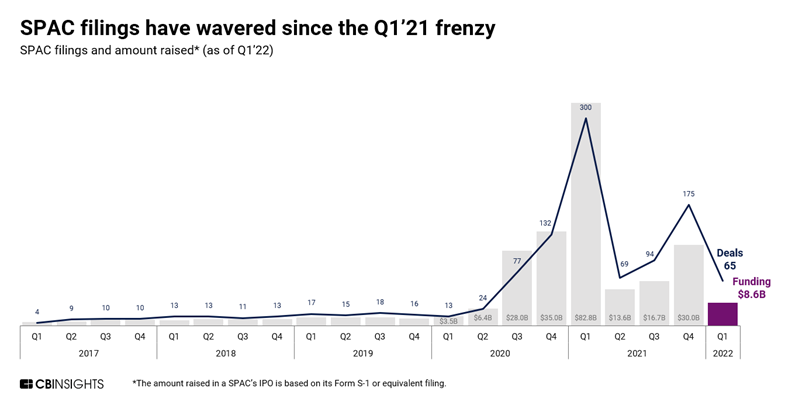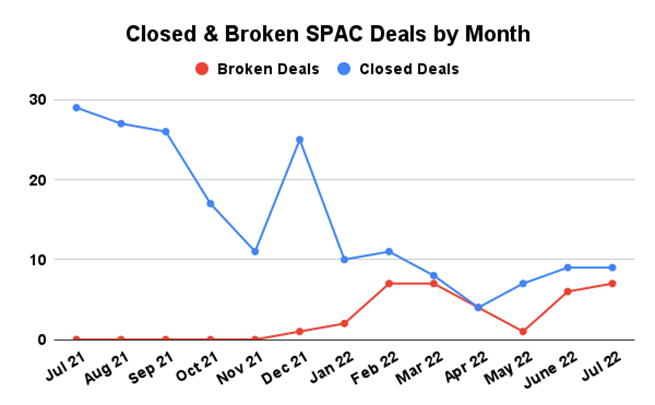SPAC Market Is Poised For A Rebound With Increased Scrutiny

By 2020, SPAC IPO activity had been booming, with a sharp growth in both the number of deals and volume across all industries, including energy. However, in 2021, investor sentiment seemed to shift as shareholder scrutiny increased, and with it, legal challenges. The headline-grabbing MultiPlan shareholder class action lawsuit that was filed on March 25, 2021, was a harbinger of the shift in sentiment towards higher scrutiny of SPAC IPOs that came later in the year. This shift in sentiment was accentuated on January 3, 2022, when the Delaware Court of Chancery rejected a dismissal of the case and commented that MultiPlan’s directors could be held to a standard of entire fairness.
READ MORE: Should SPACs Take A Page From The MLP Playbook?
As shown below, the number of quarterly SPAC IPOs declined from 300 in 1Q 2021 to only 69 in 2Q 2021.

Similarly, the number of failed de-SPAC transactions increased beginning in 2022, also corresponding with the sharp drop in broader market indices, as shown in the chart below. Anecdotally, much of the slowdown has been due to the difficulty in lining up both bank and PIPE financing. The sizes of the deals that are closing have been shrinking.

Currently, there are over 500 SPACs searching for acquisition partners, and as the broader markets are showing the beginnings of a rebound, we are seeing a lot of interest in SPACs positioning themselves for de-SPAC transactions. However, legal teams are advising management teams to focus on processes that withstand scrutiny, including in most cases independent fairness opinions. This increased scrutiny makes it more important than ever for management teams involved in a de-SPAC transaction to engage a valuation services provider who can assist in the preparation of a defensible fairness opinion.
Looking for expertise in the energy industry? We’ve got you covered.
Find out why the new landmark legislation should provide a much-needed boost for the development of carbon capture.
